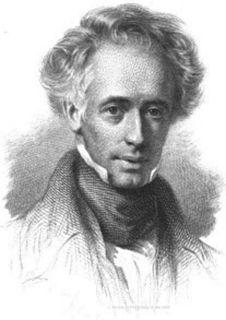A Quote by W. Somerset Maugham
A writer need not devour a whole sheep in order to know what mutton tastes like, but he must at least eat a chop. Unless he gets his facts right, his imagination will lead him into all kinds of nonsense, and the facts he is most likely to get right are the facts of his own experience.
Related Quotes
[The scientist] believes passionately in facts, in measured facts. He believes there are no bad facts, that all facts are good facts, though they may be facts about bad things, and his intellectual satisfaction can come only from the acquisition of accurately known facts, from their organization into a body of knowledge, in which the inter-relationship of the measured facts is the dominant consideration.
I don't like realism. We already know the real facts about li[fe], most of the basic facts. I'm not interested in repeating what we already know. We know about sex, about violence, about murder, about war. All these things, by the time we're 18, we're up to here. From there on we need interpreters. We need poets. We need philosophers. We need theologians, who take the same basic facts and work with them and help us make do with those facts. Facts alone are not enough. It's interpretation.
The more closely the author thinks of why he wrote, the more he comes to regard his imagination as a kind of self-generating cement which glued his facts together, and his emotions as a kind of dark and obscure designer of those facts. Reluctantly, he comes to the conclusion that to account for his book is to account for his life.
Facts are neutral until human beings add their own meaning to those facts. People make their decisions based on what the facts mean to them, not on the facts themselves. The meaning they add to facts depends on their current story … facts are not terribly useful to influencing others. People don’t need new facts—they need a new story.
A perfect historian must possess an imagination sufficiently powerful to make his narrative affecting and picturesque; yet he must control it so absolutely as to content himself with the materials which he finds, and to refrain from supplying deficiencies by additions of his own. He must be a profound and ingenious reasoner; yet he must possess sufficient self-command to abstain from casting his facts in the mould of his hypothesis.
Kafka was a complex character in a complex historical era. In order to understand him, you have to do more than cite facts. It is necessary to connect the facts in a meaningful way. His relationship to Judaism, to his father, to women, to literature - all of this is interconnected; and there are decisive moments in his life, in which such interactions suddenly become visible and can be experienced in an almost sensuous manner. It is these moments above all that I try to narrate dramatically.
Sheep run to the slaughterhouse, silent and hopeless, but at least sheep never vote for the butcher who kills them or the people who devour them. More beastly than any beast, more sheepish than any sheep, the voter names his own executioner and chooses his own devourer, and for this precious "right" a revolution was fought.






































